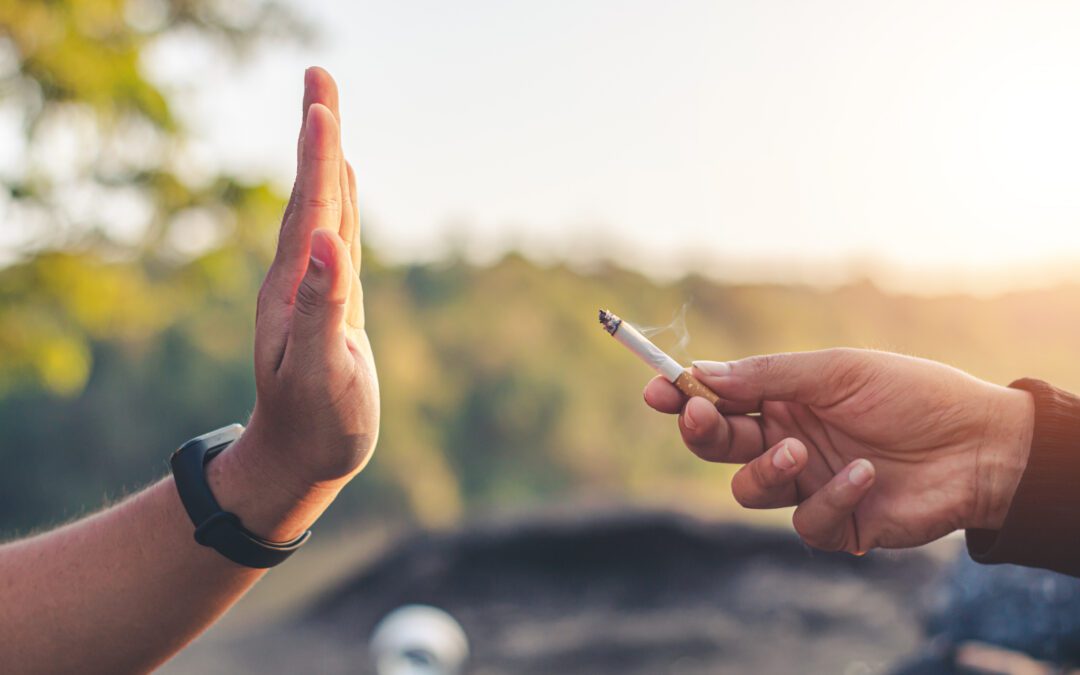There was a time when smoking cigarettes was considered the epitome of cool. More recently, the legalization of marijuana in various states has gone some distance toward destigmatizing smoking joints. And smoking crack or smoking meth have both had their cultural moments as activities emblematic of trends in drug use. There are other drugs—and combinations of drugs—that can be smoked as well.
Smoking a drug can be a quick and easy way to get the desired result, whether that result is a sense of relaxation or a feeling of euphoria. But, of course, smoking drugs can lead to all kinds of problems—including the development of a substance use disorder. And smoking in recovery is always a bad idea.
Even though that might seem obvious, it can be a good practice to remind yourself of the dangers of various drugs so that you can firm up your resolve not to smoke in recovery.
Let’s Start with Snuffing Out Cigarettes
Smoking cigarettes is often associated with folks who are in recovery, which might seem to suggest that cigarettes are not particularly problematic for a person who has done the hard work of reclaiming their sobriety.
But smoking is problematic in all kinds of ways. The negative health impacts of smoking are well documented—and they pose a danger to every smoker whether they are in recovery or not. That fact, in and of itself, is reason enough to steer clear of cigarettes.
For a person in recovery, it is also essential to remember that cigarettes are, in fact, addictive. Recovery, of course, is all about avoiding and rejecting addictive substances, and so smoking cigarettes is not in keeping with your goals. Additionally, an acceptance of cigarettes can subtly undermine your resolve when it comes to avoiding other drugs.
That means the best practice for a person in recovery is to avoid smoking cigarettes.
The Straight Dope on Smoking Marijuana
Marijuana is legal in more places than ever before, and that might suggest that smoking the substance is no big deal. But a recent article in The New York Times suggests otherwise:
About 18 million people — nearly a third of all users ages 18 and up — have reported symptoms of cannabis use disorder, according to estimates from a unique data analysis conducted for The Times by a Columbia University epidemiologist. That would mean they continue to use the drug despite significant negative effects on their lives. Of those, about three million people are considered addicted.
The estimates are based on responses to the 2022 U.S. national drug use survey from people who reported any cannabis consumption within the previous year. The results are especially stark among 18- to 25-year-olds: More than 4.5 million use the drug daily or near daily, according to the estimates, and 81 percent of those users meet the criteria for the disorder.
Long and short: Smoking marijuana is a terrible idea for a person in recovery.
Do We Even Have to Say You Shouldn’t Smoke Crack or Meth?
While we might understand a bit of hemming and hawing around smoking cigarettes or joints in recovery (though we are steadfastly opposed to either practice), there is simply no such wiggle room for that discussion when it comes to crack cocaine or meth.
These two stimulants can deliver intense feelings of euphoria, but the risks associated with them are substantial. From the paranoia and risk of stroke that come with cocaine use to the comedowns and tweaking associated with meth use, these two drugs are extremely dangerous. Additionally, attempts to stop using them are generally accompanied by severe withdrawal symptoms.
The dangers of crack and meth are not worth the risk for anyone—including, of course, people who are in recovery.
You can learn more about the dangers associated with cocaine and meth in this previous blog entry.
Clear the Smoke of a Substance Use Disorder
A substance use disorder tends to take over your entire life. When you are struggling with drugs or alcohol, it can be hard to think about much else—and it can be hard to avoid the conclusion that the substances you are ingesting are undermining your health, your relationships, your finances, and more. Efforts to give up the drugs on your own often run aground when withdrawal symptoms—including intense cravings for the drug you are trying to leave behind—arrive in force. It can feel like an inescapable trap.
But effective treatment for substance use disorders is available. At French Creek Recovery Center, we offer personalized treatment grounded in evidence-based practices, years of experience, high levels of expertise, and a spirit of empathy. We will see you through medically supervised detoxification so that you can safely purge the drugs from your system. Our rehabilitation program—which includes individual and group therapy sessions—offers resources and support while also addressing co-occurring mental health disorders. And we provide supportive programs for our alums to help them start their recovery with confidence.
Located in Meadville, Pennsylvania, French Creek Recovery Center can help you take back control of your life.

